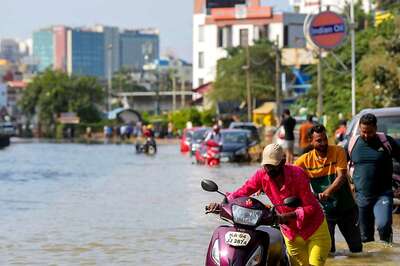
views
Geneva: India ranks second in the world for natural disasters after China, a top UN official has said underlining that unplanned urbanisation and failure to address the issue of climate change pose a grave threat worldwide.
The two rapidly growing countries in the world, China and India, rank first and second in the number of reported natural disasters. While China witnessed 22 natural disasters, India came second with 16.
About 373 natural disasters killed over 296,800 people last year. The estimated costs of natural disasters in 2010, in which an earthquake in Haiti killed over 222,500 people and the Russian heat wave caused around 56,000 fatalities, is
around $ 110 billion.
The loss of lives and destruction to property was several times higher in China which witnessed landslides, earthquakes, and floods on an increasing scale.
"Unless we act now, we will see more and more disasters due to unplanned urbanisation and environmental degradation," warned Margareta Wahlstrom, the special representative to the UN Secretary General for disaster reduction.
A disaster is "a situation or event which overwhelms local capacity, necessitating a request to a national or international level of external assistance" and "an unforeseen and often sudden event that causes great damage, destruction and human suffering."
"These figures are bad," she said, cautioning that "weather-related disasters are sure to rise in the future, due to factors that include climate change."
Other than the Haiti earthquake and the heat wave in Russia, other major disasters include the earthquake in China (estimate number of deaths 2,968), floods in Pakistan (1985 deaths), landslides in China (1765 people killed) and floods in China.
Floods, drought, earthquake, and extreme temperatures are the major sources for rising wave natural disasters.
"It's critical for local governments, city leaders and their partners to incorporate climate change adaptation in urban planning, said the UN official.
Disaster risk reduction, she said, is "no longer optional," arguing that "what we call disaster risk reduction-and what some are calling risk mitigation or risk management - is a strategic and technical tool for helping national and local governments to fulfil their responsibilities to their citizens."


















Comments
0 comment